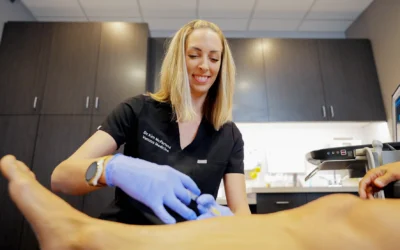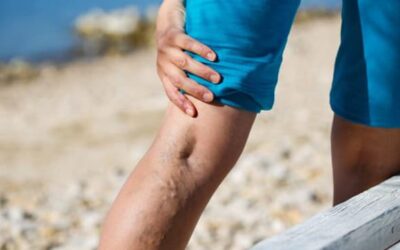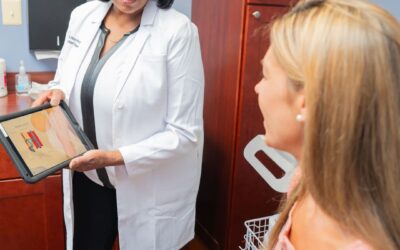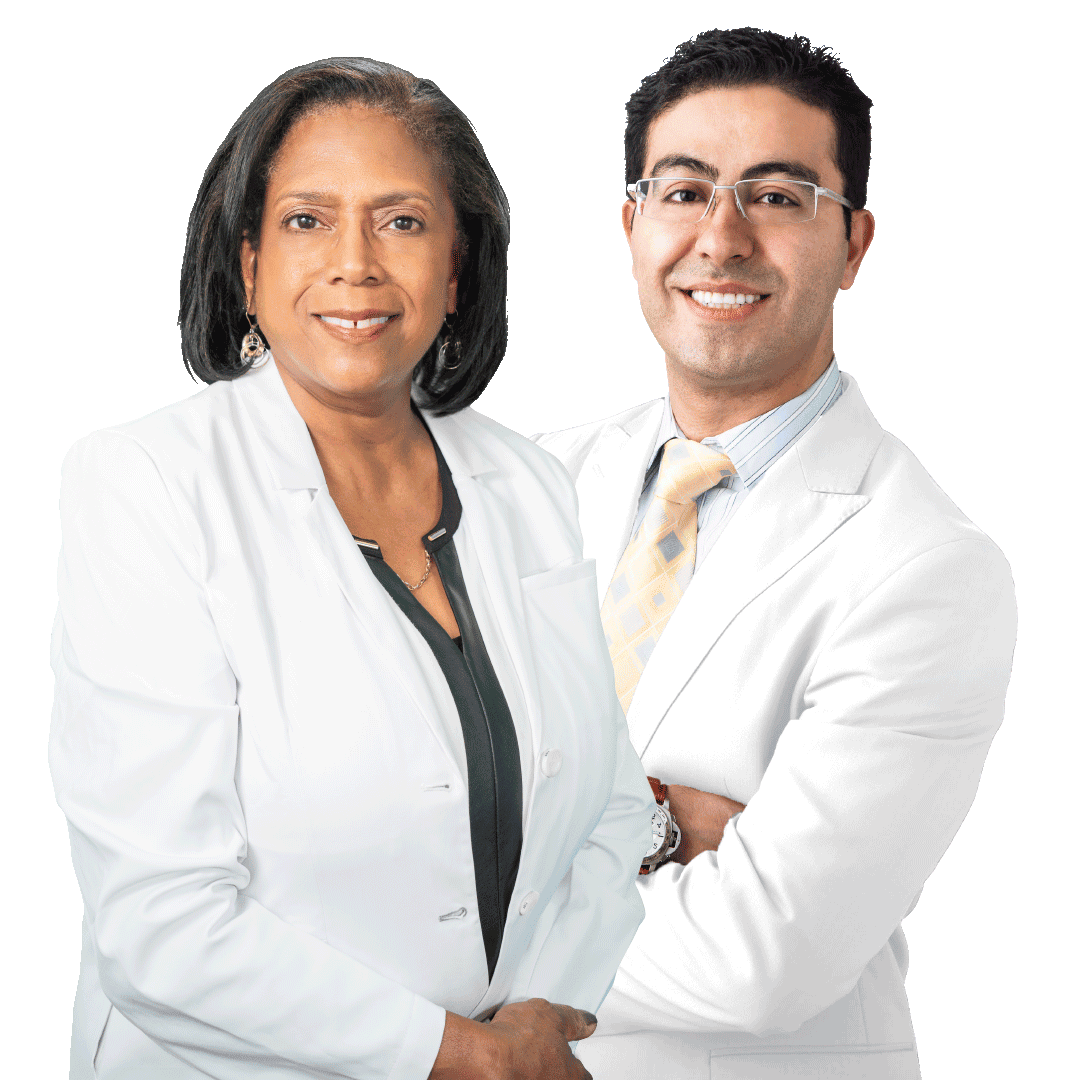Top Maryland Vein Doctors
What Kind of Doctor Specializes in Veins? And Other Questions About Vein Treatments in Maryland
What kind of doctor specializes in veins?
If you’re looking for a physician specializing in veins and vascular health, you’re looking for a phlebologist, commonly known as vein doctors, vein specialists, vein experts, or vascular doctors. Phlebology is the branch of medicine concerned with the prevention, diagnosis, and treatment of vascular conditions, and phlebologists specialize in this field. Vein doctors can come from all fields of medicine, including anesthesiology, internal medicine, and dermatology, provided they have specialized training in phlebology.
However, the barrier to entry into phlebology is fairly low. Physicians can call themselves varicose vein doctors or phlebologists after undergoing simple written tests. That’s why it’s crucial that you find vein doctors with specialized training in the form of residency programs and fellowships in vein care. It’s even better if you find board-certified vein doctors, i.e., physicians who are officially certified by the American Board of Venous and Lymphatic Medicine.
Maryland Vein Treatment is a state-of-the-art medical center led by highly-skilled, board-certified, and fellowship-trained vein doctors. We individually select vein doctors from the leading residency programs and fellowships, and they are required to undergo a board certification process. Our vein doctors also specialize in the latest minimally invasive vein treatments for spider veins and varicose veins, so you can rest assured that your vein care is in the best hands.
Our medical center for vein treatment is located at 10215 Fernwood Rd, Suite 301, Bethesda, Maryland, just outside of Washington, DC, in Silver Spring. You can schedule an appointment to meet our vein doctors in Maryland.
How to take care of veins?
Spider veins and varicose veins are extremely common conditions that affect a wide range of people. Over two-thirds of all women and half of all men experience vein problems at some point. Your risk of vein disease is particularly high if you have a family history of vein problems (genetic predisposition), are a woman, are undergoing hormone therapy, are pregnant, are over 50, are overweight, have a history of vein problems, or have a job that involves long periods of sitting or standing still.
If you have a high risk of vein problems, you can take proactive measures to improve blood circulation, strengthen your veins, and minimize the risk of vein disease. The following measures can reduce the risk of vein disease:
- Wear compression stockings regularly — they prevent blood accumulation in the legs.
- Participate in aerobic or cardiovascular exercises that activate your calf muscles, such as running, swimming, cycling, and yoga. These exercises improve blood circulation and push some of the accumulated blood in your leg veins to your heart.
- Elevate your legs above your heart’s level for 5 to 15 minutes around thrice a day.
- Remain active — don’t sit or stand still for long periods of time without movement.
- If you have a desk job, take short breaks every 30 minutes to walk and stretch your legs.
- Drink lots of water and stay hydrated — water strengthens vein walls and improves circulation.
Can I get varicose veins in the neck?
The possibility of getting varicose veins in the neck is extremely low. Varicose veins are most common in the lower extremities of the body, such as the legs, calves, thighs, and buttocks. You can also get varicose veins in other parts of the body, but the likelihood of varicose veins in the neck is extremely low. To understand why varicose veins usually appear on the lower extremities of the body and why varicose veins in the neck are rare, you need to understand what causes varicose veins.
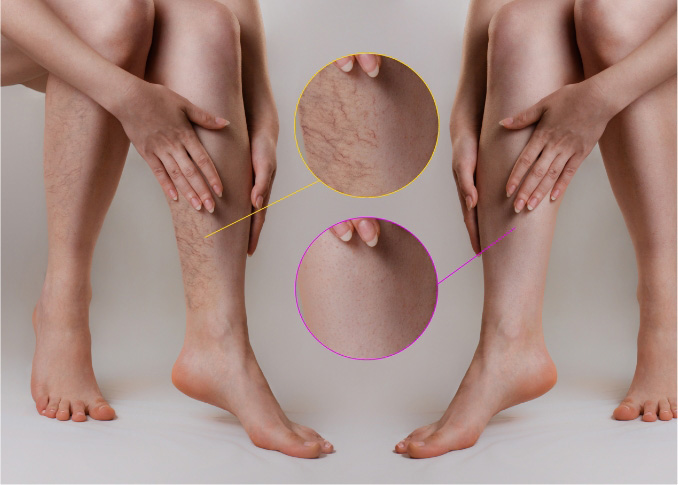
We know health insurance is confusing so we will help you check if you’re covered:
FREE Coverage Checker:
Varicose veins are usually caused by chronic venous insufficiency, the circulatory disorder responsible for most vein problems. Venous insufficiency is a medical condition caused by collapsed vein valves. In healthy veins, the valves are responsible for healthy blood circulation to the heart, often against the force of gravity, such as from the legs to the heart. When your vein valves malfunction, blood flows backward due to gravity and accumulates in the leg veins, eventually leading to vascular dilation and varicose veins.
Varicose veins are common in the lower extremities of the body because gravity forces blood to flow backward and accumulate in the leg veins when your valves collapse. But the neck is located above the heart, so blood already flows with gravity towards the heart, so the risk of vein disease in this area is fairly low.

Visit Our Maryland Vein Treatment Center
Do I need surgical treatments for varicose veins?
You don’t need surgical treatments for varicose veins. In fact, you should actively avoid vein doctors who recommend vascular surgery or varicose vein surgery instead of minimally invasive vein treatments. In the past, varicose vein surgery was the only means of removing varicose veins and the diseased saphenous vein. But thanks to the advancement of vein care, we can now treat varicose veins and underlying vein disease using minimally invasive procedures, such as endovenous laser ablation, radiofrequency ablation, venaseal, and ambulatory phlebectomy.
Minimally invasive spider vein and varicose vein treatments are safer and more effective than varicose vein surgery. Minimally invasive varicose vein treatments conclude within an hour in the vein doctor’s office. They involve a negligible risk of complications or vein disease recurrence. And they allow you to resume your daily activities immediately after vein treatment — no harsh side effects, complications, or downtime. Varicose vein surgery should only be considered after all other minimally invasive procedures have been tried.
Our board-certified vein doctors in Maryland specialize in the comprehensive diagnosis and treatment of varicose veins. Our vein doctors always perform duplex ultrasound tests to diagnose chronic venous insufficiency, following which they curate a personalized treatment plan consisting of the ideal minimally invasive procedures for you. Our considered approach to vein treatments ensures safe and consistent results with a negligible rate of recurrence.
